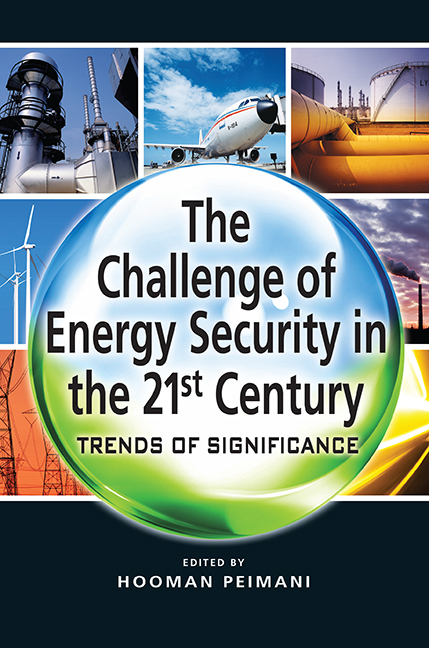Book contents
- Frontmatter
- Dedication
- Contents
- List of Tables and Figures
- List of Maps
- List of Acronyms
- Acknowledgements
- About the Contributors
- INTRODUCTION
- Global Trends in Renewable Electricity, Renewable Fuels, and Markets for Renewable Heating and Cooling
- Resource Mutualism or Codependence? The Water-Energy Nexus in Asia
- OPEC's Long-Term Role in Affecting Energy Security
- Whither a Gas OPEC? Not in the Pipeline
- Shared Interests or Competing Actions: What Drives Energy Security Cooperation between Asia and Europe?
- CONCLUSION
- Index
OPEC's Long-Term Role in Affecting Energy Security
Published online by Cambridge University Press: 21 October 2015
- Frontmatter
- Dedication
- Contents
- List of Tables and Figures
- List of Maps
- List of Acronyms
- Acknowledgements
- About the Contributors
- INTRODUCTION
- Global Trends in Renewable Electricity, Renewable Fuels, and Markets for Renewable Heating and Cooling
- Resource Mutualism or Codependence? The Water-Energy Nexus in Asia
- OPEC's Long-Term Role in Affecting Energy Security
- Whither a Gas OPEC? Not in the Pipeline
- Shared Interests or Competing Actions: What Drives Energy Security Cooperation between Asia and Europe?
- CONCLUSION
- Index
Summary
1. INTRODUCTION
Despite a growing concern about fossil energy's contribution to environmental degradation and, particularly, global warming, oil, natural gas, and coal have remained the major sources of energy worldwide. In particular, oil has been the most commonly used type of fossil energy for about a century because of its abundance and also its relatively easier process of extraction, transportation, and utilization compared with coal and gas. Ever since its commercial extraction started in the second half of the nineteenth century, oil has gradually managed to end a few centuries of the domination of coal as the main and an inexpensive source of energy globally since the modern industrial era, with its ever expanding energy requirements, began about 200 years ago. Natural gas, considered an environmentally cleaner type of fossil fuel compared with oil and coal, has slowly increased its share of the global market since the 1960s. However, oil is still the dominant energy fuel in terms of global demand and, thus, consumption. Its current pre-eminent status will likely remain unchallenged in the foreseeable future notwithstanding the necessity of substantial cuts in the usage of pollutive fossil fuels, including oil, to mitigate and eventually reverse global warming caused chiefly, but not exclusively, by greenhouse gases emitted from such energy.
Against this background, it is no wonder if oil has been a key issue globally as a major commodity in demand that is of crucial significance both for oil exporting countries and oil importing ones. For the former, it is a source, if not the source or the single largest source, of revenue, while it is a vital necessity for oil importing countries relying on oil as a main or the main source of energy for their economies. Two logical consequences can be drawn from such realities. First, oil exporting countries unsurprisingly play a major role in the global energy markets and also in international affairs because of their ability to affect oil importing countries' economies.
- Type
- Chapter
- Information
- The Challenge of Energy Security in the 21st CenturyTrends of Significance, pp. 80 - 104Publisher: ISEAS–Yusof Ishak InstitutePrint publication year: 2011

